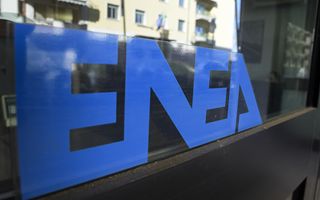(Finance) – Detect chemical, biological, radiological and nuclear (CBRN) threats remotely and in real time thanks to new generation quantum sensors that allow more precise, reliable measurements based on fewer resources than traditional sensors. These are some of the results of HADES project, coordinated by AENEAS and financed by NATO’s “Science for Peace and Security” (SPS) programme in which the NATO Defense College Foundation, the University of Roma Tre and Geneva and companies Nuclecus And Inov8 System.
In particular, ENEA has developed a quantum spectrometer, that is, an innovative device capable of locating, characterizing and making measurements on photons that have never interacted with the target, identifying the properties of various potential infrared threats, including harmful liquids and gases. Compared to traditional sensors i quantum sensors have demonstrated significant advantages such as more precise measurements, even with low radiation fluxes and with small sample quantities.
The research conducted and the results obtained open new perspectives in the remote identification and localization of potential threats in the defense sector but also for a wide range of applications in different industrial segments: from the medical sector, to chemical-pharmaceuticals, from energy to transport and space.
“Quantum sciences and technologies are one of the most promising fields of research at an international level, especially in the security sector, where we have also worked on the development of a roadmap for Quantum Sensing – highlights Andrea Chiuri of the ENEA Diagnostics and Metrology Laboratory –. Furthermore, by exploiting in a controlled way the properties of quantum particles such as photons it is possible to create sensors and measuring instruments of various physical quantities with extreme accuracy, also useful in the biomedical field, thanks to the possibility of working even with low radiation flows and without damaging the champion”.
As part of the project, tests were also carried out on real solid, liquid and gaseous targets, including Volatile Organic Compounds (VOCs), that is, particular chemical compounds that evaporate in the air at room temperature, representing a potential threat to humans. The experimentation carried out demonstrated the validity of the approach in terms of reliability, sensitivity, stability and precision.
In addition to Nucleco, Inov8 System and Nato Defense College Foundation, teachers from the Universities of Milan, Paderborn, Darmstadt and Berlin (Germany) and researchers from INRIM were involved in the role of end users.
